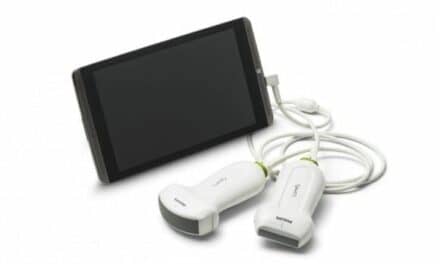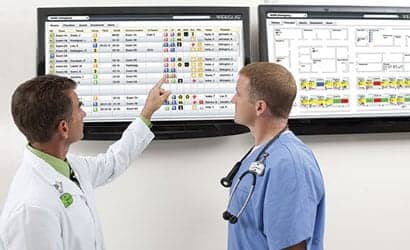Philips announces that its X11-4t Mini 3D TEE transducer has received U.S. FDA 510(k) clearance.
Cardiovascular ultrasound plays a key role in the early diagnosis of structural heart disease, according to Philips. The company’s transesophageal echocardiography (TEE) ultrasound transducer helps cardiologists by providing highly detailed images of the heart and its internal structures.
In structural heart disease, the quality of a 3D TEE image can help save lives, according to the company. TEE is also a valuable tool for minimally invasive heart surgeries and procedures, transforming the treatment of damaged heart valves and congenital heart defects.
However, there were some patients who still couldn’t benefit from this advanced technology, including some pediatric patients and complex cases such as ICU patients, where the transducer probe for 3D TEE was too large. Philips’ new X11-4t Mini 3D TEE transducer is designed to bring 3D TEE imaging to previously unaddressed patients.
“As a pioneer and leading innovator in cardiac ultrasound, our 3D ultrasound technology plays a critical role in many cardiac procedures. But it was frustrating to know that there were still some patients who couldn’t benefit from this hugely beneficial approach to image the heart, and as a result, would often require a different, more invasive, treatment approach,” says David Handler, Vice President and general manager for global cardiology ultrasound at Philips.
“That’s why we’ve developed a new, even smaller mini 3D TEE transducer that can be used to help physicians serve a wider range of patients, from small children to fragile adults. With this innovation we can help reduce the need for general anesthesia and lower the risk of complications, meaning patients may recover faster from procedures and can be discharged sooner,” Handler ads.
The X11-4t was developed to be easily tolerated by patients due to its 35% smaller size and pill-shaped design. Clinical staff can also benefit from a Mini Live 3D TEE solution that allows them to care for a wider range of patients, using the same hand control, procedure navigation techniques used in other Philips’ EPIQ cardiac ultrasound systems. As a result, echocardiographers require minimal additional training on this newest transducer.
The new transducer is compatible with Philips’ premium cardiology ultrasound portfolio including the EPIQ CVx and EchoNavigator image-guided therapy solution.





